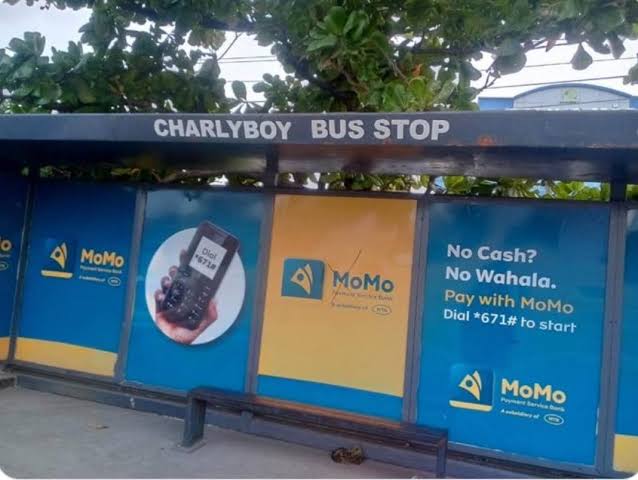Charly Boy bus stop renaming: A legal and ethnic controversy in Lagos

Charly Boy bus stop in Bariga LGA, Lagos state. Photo Credit- Premium Times
Few days ago the Bariga Local Council Development Area (LCDA) in Lagos, under outgoing chairman Kolade Alabi, renamed the iconic Charly Boy Bus Stop to Badoo Bus Stop, honoring Nigerian hip-hop artist Olamide Adedeji. The decision, part of a broader wave of street renamings, has sparked outrage, with veteran Igbo entertainer and activist Charles Oputa (Charly Boy) calling it “silly and petty” and accusing authorities of erasing his legacy. Critics, including legal experts and activists, see the move as a legal maneuver and potentially reflective of ethnic tensions between Yorubas and Igbos. This piece is set to critique the renaming from legal and socio-political perspectives, examining its implications for Nigeria’s unity and the delicate balance of cultural identity in Lagos.
Between authority and due process
The renaming has been slammed as illegal by human rights lawyer Femi Falana (SAN), who argues it lacks public consultation and violates democratic principles. The Charly Boy Bus Stop, named organically by Bariga and Gbagada residents, holds sociological significance tied to Oputa’s activism, and its unilateral replacement raises questions about the Bariga LCDA’s authority, especially given Lagos State’s stance that local governments control such decisions. Without transparent guidelines or community input, the renaming risks being struck down in court as arbitrary, potentially breaching Section 42 of the 1999 Constitution, which prohibits ethnic discrimination.
Legal scholars like Monday Ubani further contend that the decision reflects a pattern of erasing non-Yoruba landmarks, particularly those linked to Igbos, and could be challenged as unconstitutional. The absence of public hearings or historical justification undermines the legitimacy of the process, highlighting the need for clear regulations to ensure fairness and prevent authoritarian overreach in renaming public spaces.
RELATED STORIES
Nigeria: A Paradox Called Federalism
Nationhood: Going Beyond Hausa, Yoruba And Igbo Arrangement
The case of tribalism or local pride?
The renaming has fueled accusations of anti-Igbo sentiment, with Charly Boy and supporters like Omoyele Sowore framing it as an attempt to marginalize Igbo contributions in Lagos. Similar renamings, such as replacing Igbo-associated street names like Imo Eze in Ajeromi-Ifelodun LGA, amplify perceptions of a “Yorubanization” agenda, rooted in historical anti-Igbo rhetoric, including election-related tensions in 2019 and 2023. This risks alienating Igbos, who have significantly shaped Lagos’ economic and cultural landscape, and threatens the city’s cosmopolitan identity.
Defenders argue the renaming celebrates Olamide, a Bariga native whose music champions Yoruba heritage, but choosing to replace an existing Igbo-associated name rather than assigning a new one fuels suspicions of ethnic bias. The timing, coinciding with the chairman’s exit and Charly Boy’s criticism of the ruling APC, suggests political motives, deepening mistrust and highlighting the need for inclusive policies to prevent ethnic division.
What the issue has on Nigeria’s unity
The controversy underscores Nigeria’s fragile ethnic harmony, with Lagos’ diversity often likened to New York. Charly Boy’s bus stop, a grassroots symbol of resistance, reflects Lagos’ multicultural spirit, and its erasure risks signaling intolerance, potentially deterring investors and damaging the city’s global reputation as Nigeria’s commercial hub. The politicization of cultural memory, as Sowore notes, mirrors historical attempts to silence dissent, further straining Igbo-Yoruba relations in a city built on shared contributions.
The renaming also highlights the need for proactive measures to affirm Lagos’ inclusivity. Policies that erase one group’s legacy while elevating another’s undermine national unity, especially amid Nigeria’s broader challenges of insecurity and economic strain. Authorities must prioritize dialogue to address grievances and ensure that cultural recognition strengthens, rather than fractures, Lagos’ social fabric.
RELATED STORIES
Democracy in a distressed society: Of Conflicts & Contradictions
Final take
To resolve the crisis, Lagos must enforce transparent guidelines for street naming, mandating public consultation and historical justification to prevent arbitrary decisions. A judicial review, as Falana suggests, could set a precedent for protecting community-named landmarks, ensuring that renamings respect constitutional protections against discrimination and uphold democratic values. Engaging residents in the process would restore trust and affirm the legitimacy of local government actions.
Ethnically, authorities should avoid replacing existing names and instead honor figures like Olamide with new landmarks, preserving the contributions of all groups. Dialogue with stakeholders, including Igbo and Yoruba leaders, is essential to address historical tensions and promote policies that celebrate Lagos’ diversity, ensuring the city remains a true melting pot rather than a battleground for ethnic rivalries.
While much is left to be discussed, it is wise to draw the curtain close now. The renaming of Charly Boy Bus Stop to Badoo Bus Stop is a legally flawed and socially divisive act that risks exacerbating ethnic tensions in Lagos. While Olamide’s contributions merit recognition, erasing an Igbo activist’s legacy without community input smacks of ethnic insensitivity and political pettiness. Legal accountability and inclusive policies are crucial to restore trust and uphold Lagos’ multicultural identity. By prioritizing fairness and dialogue, authorities can honor all contributors, ensuring that the city’s heritage reflects its shared, diverse spirit.

